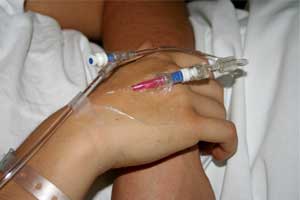- Home
- Editorial
- News
- Practice Guidelines
- Anesthesiology Guidelines
- Cancer Guidelines
- Cardiac Sciences Guidelines
- Critical Care Guidelines
- Dentistry Guidelines
- Dermatology Guidelines
- Diabetes and Endo Guidelines
- Diagnostics Guidelines
- ENT Guidelines
- Featured Practice Guidelines
- Gastroenterology Guidelines
- Geriatrics Guidelines
- Medicine Guidelines
- Nephrology Guidelines
- Neurosciences Guidelines
- Obs and Gynae Guidelines
- Ophthalmology Guidelines
- Orthopaedics Guidelines
- Paediatrics Guidelines
- Psychiatry Guidelines
- Pulmonology Guidelines
- Radiology Guidelines
- Surgery Guidelines
- Urology Guidelines
Burn injuries increases patient's susceptibility for PTSD: Loyola Medicine Survey

A Loyola Medicine survey has found that 15.8 percent of adult burn patients screened positive for post-traumatic stress disorder (PTSD). The results of the survey were presented at the annual meeting of the American Burn Association, where it was named the top poster in the psychosocial category of the poster session.
Clinical psychologist Elizabeth Simmons and colleagues from Loyola Medicine's Burn Center conducted the survey.
"We identified a significant group of patients with elevated symptoms of PTSD who may benefit from further mental health assessment and intervention," Dr. Simmons said.
Burn injuries often are very traumatic and can lead to mental health disorders, especially acute stress disorder (ASD) and PTSD. Mental health treatment and identifying patients who need further support are important elements of providing comprehensive, multidisciplinary care.
PTSD is triggered by seeing or experiencing a terrifying event. Symptoms can include flashbacks, nightmares, severe anxiety and uncontrollable thoughts about the event.
In the Loyola survey, a four-question PTSD screening test was administered to 1,020 burn patients in an outpatient clinic. Patients were asked if they had ever had an experience that was so frightening, horrible or upsetting that in the past month they:
- Had nightmares about it or thought about it when they did not want to
- Tried hard not to think about it or went out of their way to avoid situations that reminded them of it
- Were constantly on guard, watchful or easily startled
- Felt numb or detached from others, activities or their surroundings
Patients who answered "Yes" to three or four of the questions tested positive for PTSD. A positive result does not necessarily mean a patient has PTSD. But it does indicate a patient may have the condition or other trauma-related problems and may need to be evaluated by a mental health professional.
The screening test provided an opportunity to alert medical providers to distressing symptoms. A social worker also was notified and provided patient resources for additional support for those who screened positive.

Disclaimer: This site is primarily intended for healthcare professionals. Any content/information on this website does not replace the advice of medical and/or health professionals and should not be construed as medical/diagnostic advice/endorsement or prescription. Use of this site is subject to our terms of use, privacy policy, advertisement policy. © 2020 Minerva Medical Treatment Pvt Ltd